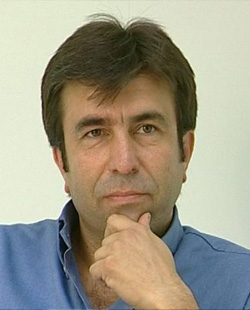
OSA Fellow Pablo Artal has kindly allowed OPN’s Bright Futures career blog to republish content from his popular blog Optics Confidential. In his blog, Artal fields questions from students, colleagues and other researchers on science, society and managing a career in optics.
Dear Prof. Artal: After several years working as a post-doc, I have just obtained a tenure-track academic position. What advice do you have for someone who is looking to embark on a successful independent career as a scientist. --Helena, North Carolina, U.S.A.

You have to behave now as an independent researcher, and I am sure that you and your new institution have the highest expectations for you. First, I am glad that you consider me a successful researcher, or at least someone who can provide valuable information to achieve that goal. To be honest, I am not sure if my comments will be helpful; everyone needs to find his or her own path. But here is some general advice, much of which is common sense.
Ask the right questions. You need to have your own interesting and new ideas and your own important questions to be explored and eventually answered. This is critical. At this point, you know your field and you have the basic technical abilities needed to ask good questions and hopefully obtain some answers. You can frame your questions at any time—in bed, at meetings, driving... Of course, you will have to organize them later, and that is the difficult part.
Work hard and manage your time wisely. I presume your plan is to dedicate your time to your research projects nearly without limit. Hard work and organizational skills are key factors. Be generous with your time and efforts. If you are also teaching, do the best you can, but try to limit your dedication to teaching to what is reasonable. Academic life also usually demands that you spend time in useless meetings. Be strict about setting limits and attending only what is important for you.
Of course, the most difficult balance to strike is between work and your family or personal life. Everyone must decide for themselves how to do this. But keep in mind that you cannot be in the lab the whole day and every single weekend—nor should you be. Learn to take time off, and don’t work on holidays.
You will need money. Writing good grant applications is difficult, and I will not cover that here, but, first and foremost, it requires having a good idea or solution to a problem.
Select your lab members wisely. The ability (or luck) to have the best lab members is extremely important. It is better to start working alone than to have mediocre and unmotivated students working for you. Hiring a problematic team member would affect your ability to succeed. Of course, it is very difficult to know that in advance—but start by always asking for references when talking to students—preferably from those who you trust in your field. I have been extremely lucky in this area.
You also need to make friends within the scientific community in which you are working. Try to collaborate more than you compete, and keep in mind that you will have contact with some of these people for many years into the future. Building and maintaining good personal relationships with other colleagues is critical.
Focus and finish. In the first years and perhaps always, the risk of spreading yourself too thin is quite high. Try to focus and to finish all of your experiments and projects before taking on others. It is natural to always want to explore new areas, but it is better to wait until your current projects are solid enough for you to report on. Writing and presenting at meetings is a good way to maintain your focus.
Balance exposure and modesty. You should actively participate in scientific events, but you should also try to balance your exposure with reasonable modesty. We always know less than we should, and there will always be somebody else who is better or smarter. Be sure that you never underestimate any of your audiences.
Quality over quantity. In the long term, the quality of your research will outweigh its quantity. Keep your own standards high. This will help you to establish a (good) reputation in the field. That will be your most important asset.
Enjoy yourself. Of course, this will not be possible every minute, but you need to have fun and enjoy what you do. Then you will be able to transfer this enthusiasm to others and engage them in your research.
Most of this advice should apply to all levels of scientists, from those in their early student days to well-recognized senior-level scientists. Although this is an incomplete list, I hope you find it somewhat useful. I wish you the best of luck!
Pablo Artal (Pablo@um.es) is an OSA Fellow and professor of optics at the University of Murcia, Spain. He is an optical and vision scientist with an interest in visual optics, optical instrumentation, adaptive optics, and biomedical optics and photonics.
